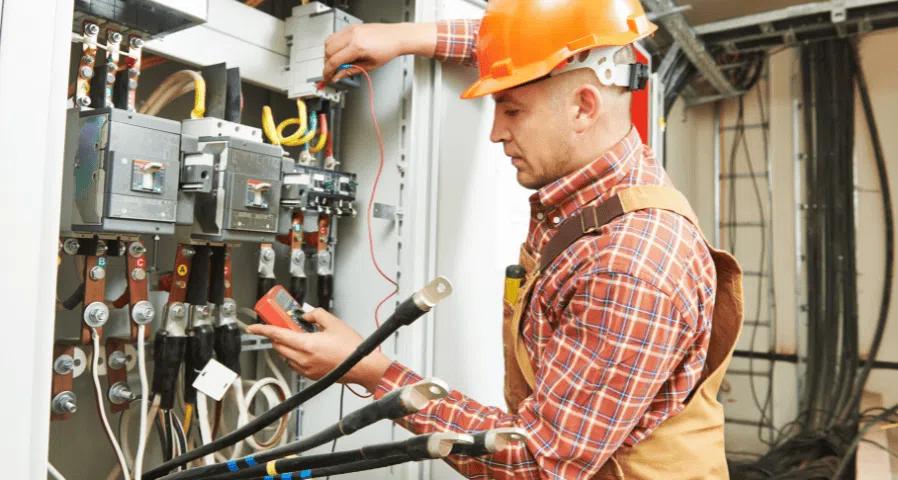Daylighting Controls & Daylight Savings: Optimizing Natural Light Through the Changing Seasons
Studies have shown that natural lighting has proven to improve workplaces by helping employees be more comfortable and efficient. As…

Commercial and industrial facilities are reliant on proper electrical services to remain operational. Electricians have a wide range of duties such as basic installations, control systems and advanced automation. They are also responsible for ensuring safety and compliance with code regulations. Due to the differing functions, electrical services are going to vary between commercial and industrial businesses. Continue reading to learn the differences between sectors, plus how they tie into energy efficiency and sustainable efforts.
Businesses of all industries are prioritizing sustainability and reducing energy consumption within their day-to-day operations. As they implement ESG strategies to meet green standards and lower carbon footprints, technologies like LED lighting, energy management systems and renewable energy integration have gained popularity.
Energy efficient lighting solutions and smart building systems are trending within commercial properties. These solutions provide property managers with valuable tools like automated controls, sensors and energy monitoring systems that can significantly cut energy waste. This allows businesses to see data on where and how energy is being used.
Industrial settings commonly use heavy equipment and are high-power-demand environments. Advanced motor control systems, automated processes, and energy storage solutions help industries meet their energy goals while maintaining production standards. Industrial facilities have been incorporating renewable energy sources, like solar power, to offset the amount of electricity needed to remain operational meanwhile reduce dependency on traditional energy sources, like oil.
Commercial electrical services are focused on businesses like retail stores, restaurants, hotels and office spaces. Their services range from basic electrical installations to security systems and energy management solutions.
Some key components of commercial electrical services include:
Adherence to local codes, safety protocols, and national standards is critical. Professional electrical contractors should regularly inspect and provide routine maintenance to commercial properties to avoid costly downtimes or safety hazards.
Industrial electrical services are much more complex due to the heavy-duty machinery and larger scale operations, like manufacturing plants or processing facilities. Industrial facilities have much more rigorous safety standards than commercial and use significantly more energy per day.
Some examples of industrial electrical services include:
Industrial electrical systems are becoming more intelligent from the advancements in technology like automation, data exchange and connectivity. This allows for flexibility and efficiency in large, high-powered environments.
Electrical Service Trends for 2025 and Beyond
Sustainability and environmental impact are a growing concern across the globe. The latest advancements in technology are providing businesses with tools to track, analyze and cut down energy usage in their properties. There are a few key trends that are valuable for commercial and industrial sectors:
As these trends continue to evolve, businesses must stay ahead by working with experienced electrical contractors who are well-versed in the latest technologies and sustainability practices.
Action Services Group has a trusted network of certified electrical professionals nationwide. We offer turn-key electrical project management solutions and electrical services that fit your timeline, budget and energy goals. To speak with one of our specialists, call 610-558-9773, email [email protected], or schedule a call that fits your needs by clicking the button below.